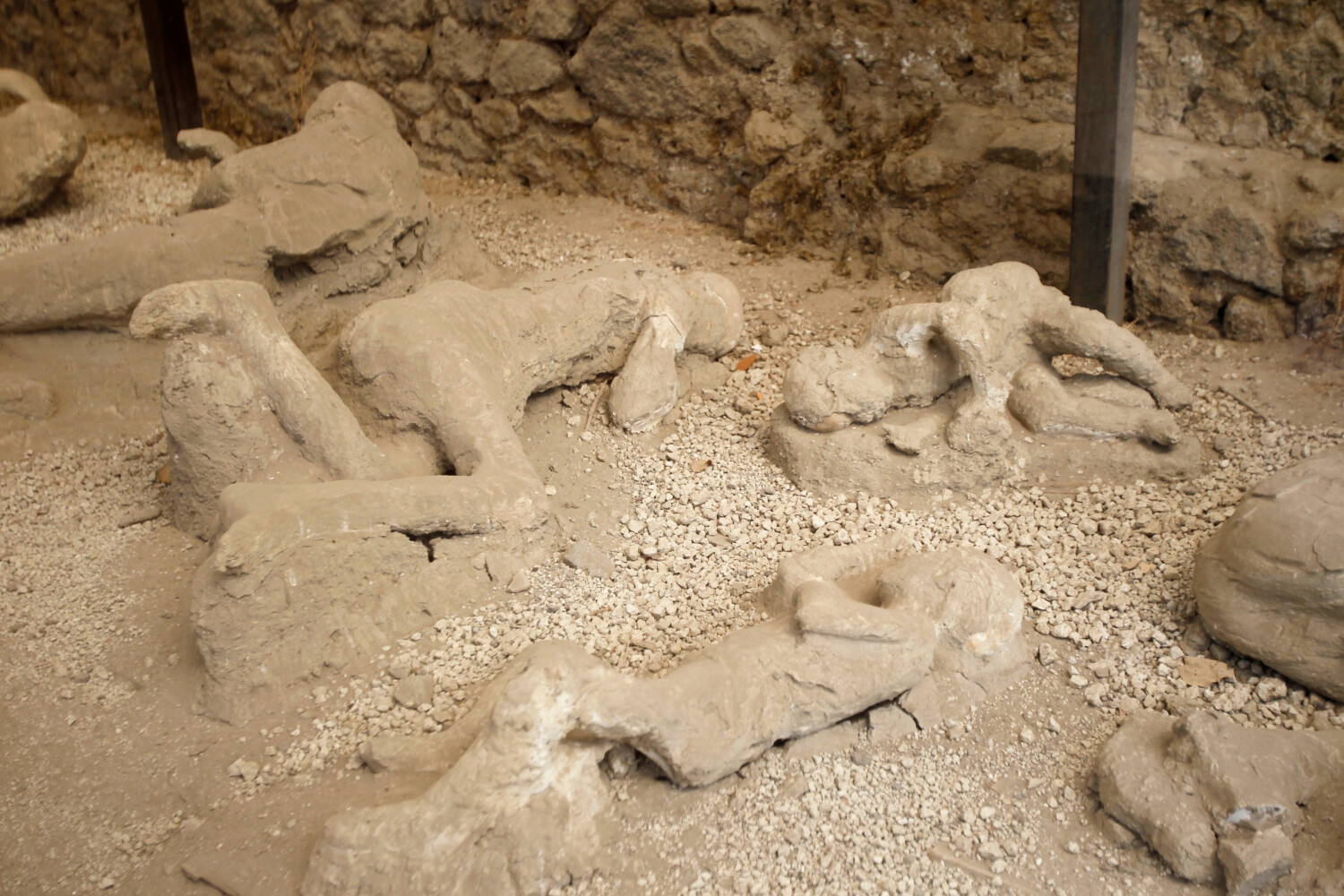Did people chow down on pizza in ancient times? Because excavators digging through a 2,000-year-old archeological site in Pompeii recently found a still-life painting — and it includes a food item that looks suspiciously like pizza.
The artist painted a silver tray with a wine chalice, some fruit (possibly pomegranates, dates and a strawberry vine) and what looks like a round flatbread piled with toppings. The fresco is part of a genre of ancient images called “xenia” — renderings of the “gifts of hospitality” that were offered to guests, according to experts from the Archaeological Park of Pompeii.
Researchers found the fresco while excavating the atrium of a house within an ancient site in Italy that is more than 34,000 square feet in size. This archaeological area, the largest in the world, covers basically an entire neighborhood and has been endlessly fascinating for historians.
When the volcano Mount Vesuvius erupted in 79 A.D., the destroyed city was blanketed in ash that killed thousands but preserved the buildings and ancient artifacts underneath for centuries. Archeologists are still finding treasures there — and learning about the ancient world.
MORE: Grandmas from around the world cook meals at this restaurant
But while they’ve been able to draw a lot of conclusions about the ancient people of Pompeii, they’re not sold on the idea that this city’s ancient inhabitants ate pizza as we know it.
In a press release, researchers at the Archaeological Park point out that while it looks like pizza, ingredients like tomatoes and mozzarella aren’t evident in the image (in fact, tomatoes don’t come to Italy until the 1500s as a result of Spanish colonization of the Americas). But they do concede that what looks like a focaccia topped with fruits, spices and possibly some kind of pesto could be a “distant ancestor of the modern dish.”

MORE: Woman found a marble bust at Goodwill for $34.99—but it’s actually from ancient Rome
We can confirm, outside of the painting discovery, that the diet of these ancient peoples involved carbs. When scientists studied the skeletons of some of the volcano’s victims, they were able to determine some of the eating habits of the people who lived in the city of Herculaneum, 10 miles north of Pompeii.
“We found that they ate a lot of cereals,” Silvia Soncin, of the Department of Environmental Biology at Rome’s Sapienza University, told the New York Times. “Obviously with our analysis, we couldn’t tell what kind of cereals they ate, whether bread or pizza, and whether or not it was topped with something.”
Clearly, more research is needed to discover more about the people of the Roman colony of Pompeii as well as the culinary history of foods we love. Whatever is on that flatbread, it looks appetizing to us even in painted form!
This story originally appeared on Simplemost. Check out Simplemost for additional stories.


